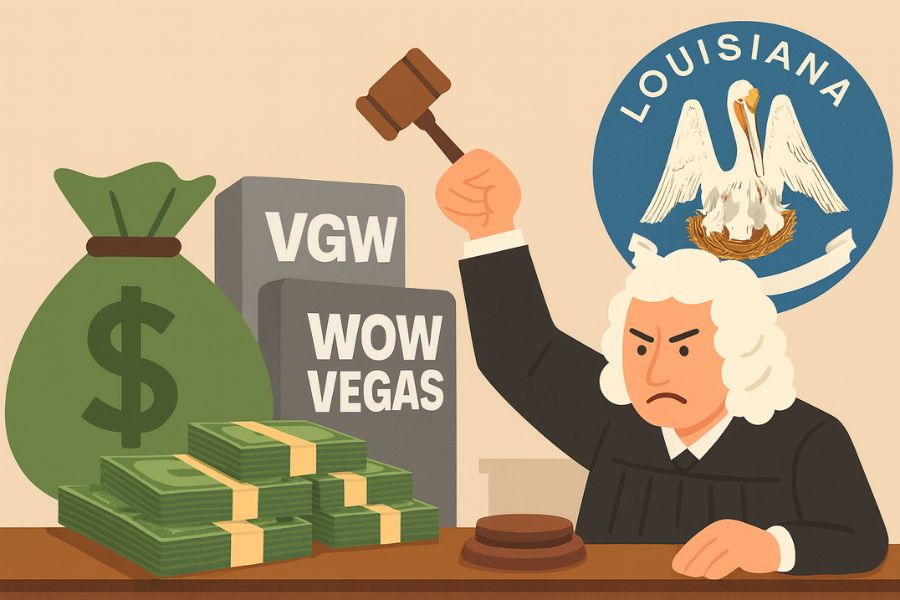Louisiana’s Department of Revenue has filed two lawsuits against Virtual Gaming Worlds (VGW) and WOW Vegas, claiming the companies failed to collect and remit sales taxes on in-app coin purchases.
The state is seeking about $44 million in taxes, interest, and penalties tied to the operators’ sweepstakes platforms. The cases could affect how other sweepstakes casinos do business in the United States, but for now these are allegations, not final rulings.
Why Louisiana Says Taxes Are Owed
At the center of the dispute are purchases of virtual currency used on sweepstakes casinos. Players can buy Gold Coins to play for fun, and receive bonus Sweeps Coins that can be used to enter games and redeem prizes.
Louisiana argues those coin purchases are taxable sales, and that operators must charge and remit sales tax like other digital goods.
Court filings shared publicly say the state is seeking roughly $32.5 million from VGW and about $13.6 million from WOW Vegas. Those totals include tax, interest, and penalties, and they focus on sales tied to in-state customers.
Both companies were among the 41 operators that received cease-and-desist letters earlier this year, a sign the Department was preparing a broader enforcement push.
What It Means and What Comes Next
This tax strategy follows a policy fight in Baton Rouge. In April, lawmakers passed SB 181, aimed at banning “dual-currency” online games. Governor Jeff Landry vetoed the bill, but Attorney General Liz Murrill later issued an opinion saying such sites may already be illegal under existing law.
With the veto in place, Louisiana has leaned on tax enforcement to police the market.
Operators have already adjusted. WOW Vegas left Louisiana in July, stopping service to local customers. VGW updated its terms of service around the same time to begin charging tax on coin purchases, and some users in other states also received notices about new tax handling.
These moves don’t decide the lawsuits, but they show the industry reacting to state scrutiny and trying to limit future exposure.
What happens now? The lawsuits will move through the legal process, giving both companies a chance to respond and contest the claims. For players, the most visible changes may be taxes appearing at checkout or fewer platforms operating locally.
The outcome could set a precedent for how states treat coin purchases on sweepstakes sites. Until a court rules or a settlement is reached, nothing is final, and similar actions could target other operators that rely on the same business model.




